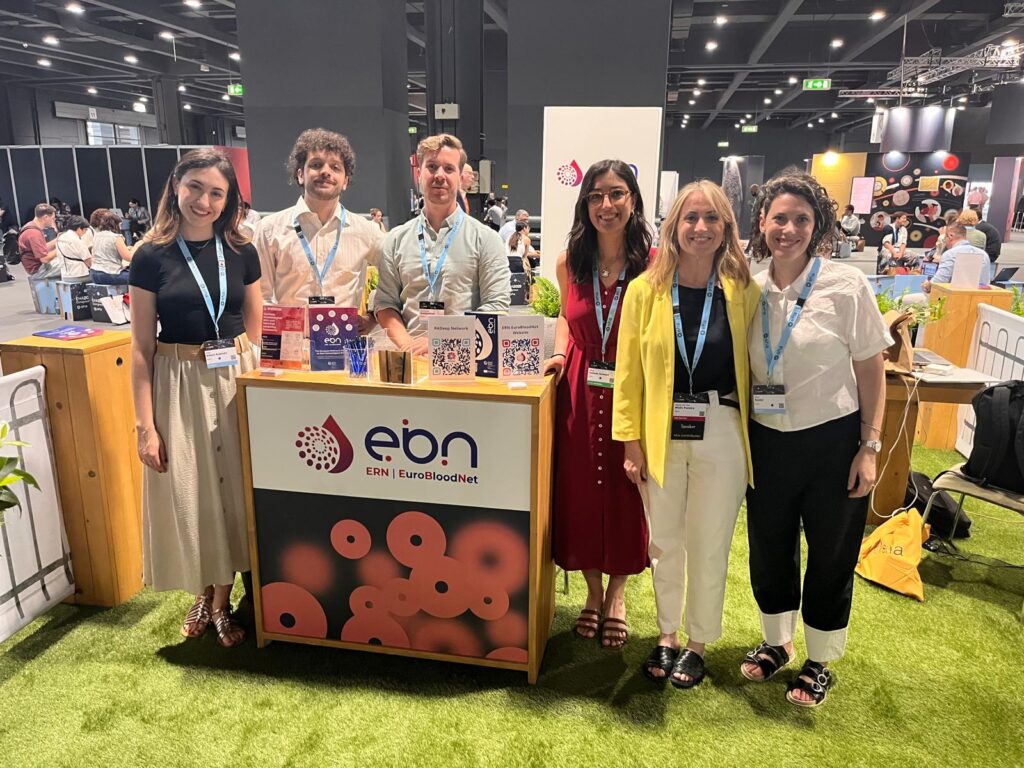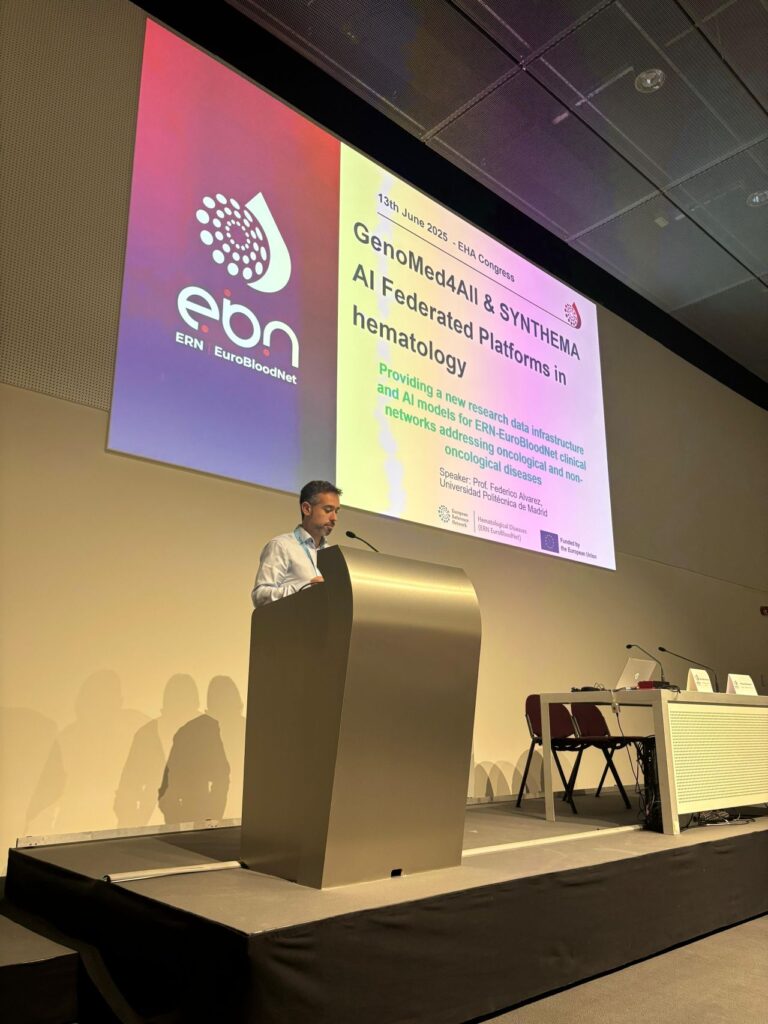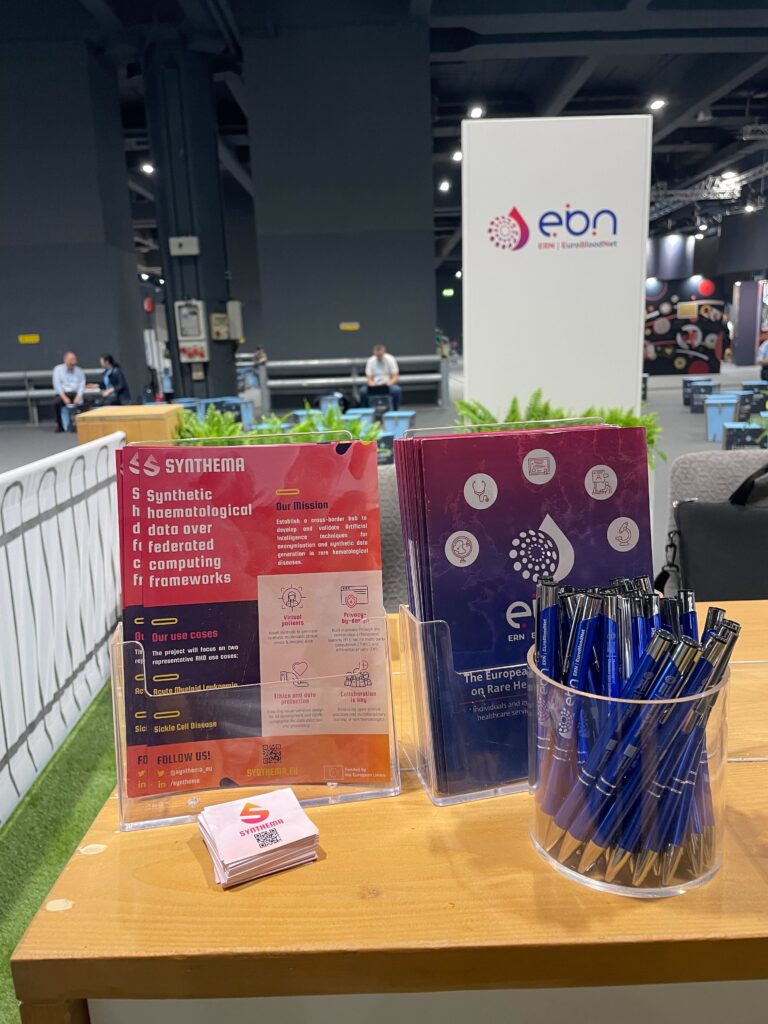SYNTHEMA participated in the European Hematology Association (EHA2025) Congress held in Milan from June 12 to 15, with a strong presence in the Clinical and Data-Driven Research session hosted by ERN-EuroBloodNet on June 13. The session focused on how clinical registries, federated platforms, and AI-based methods are supporting research and care in rare haematological diseases without compromising data privacy. SYNTHEMA and its sister initiative, GenoMed4All, presented joint advances in privacy-preserving AI tools for clinical data analysis and synthetic data generation.

Federico Alvarez, SYNTHEMA Project Coordinator from Universidad Politécnica de Madrid, delivered a presentation titled “GenoMed4All & SYNTHEMA AI Federated Platforms in Hematology”. He emphasised the role of cross-border collaboration and AI infrastructure:
“GenoMed4All and SYNTHEMA projects are building next-gen infrastructure and AI models to power research and care across EuroBloodNet clinical networks for both oncological and non-oncological rare hematological diseases.”
This contribution positioned SYNTHEMA as a key player in enabling secure, collaborative data use across European research centers.
In addition to the session, SYNTHEMA was represented in the poster exhibition by Sigrid van der Veen (UMC Utrecht), who presented a study titled “Optimizing Hydroxyurea Therapy in Sickle Cell Disease: Insights from Metabolite Detection, Treatment Response, and Clinical Outcomes.” This research contributes to the understanding of hydroxyurea metabolism and its clinical effects, offering new directions for more tailored treatment strategies for SCD patients in Europe.
By linking AI innovation with clinical application, SYNTHEMA continues to support data-driven research in rare haematological conditions. The project’s contributions at EHA2025 reflect its commitment to improving the usability, privacy, and impact of health data in rare disease contexts.


